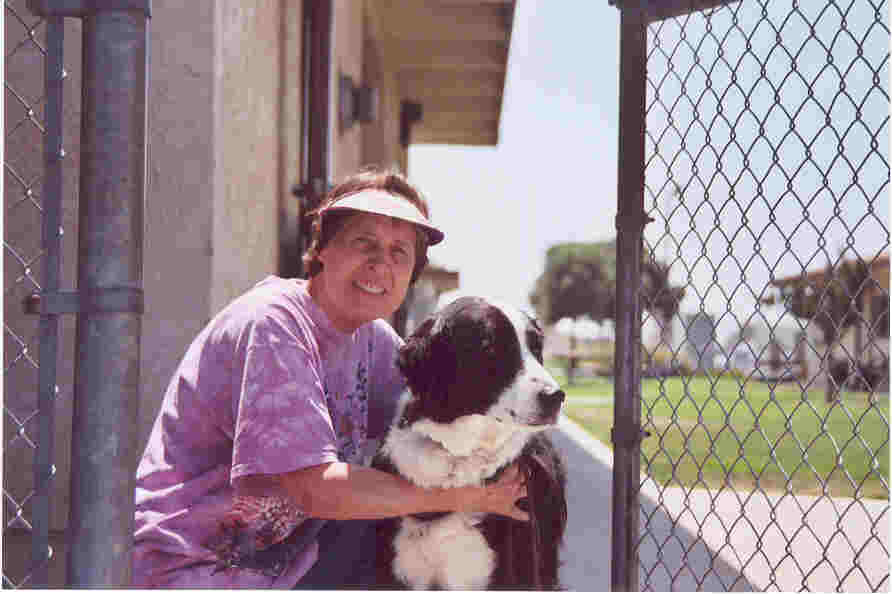The Witness of Vegetarian Friends
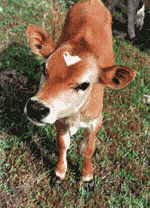 The affirmation of the presence of the Divine Light in every one is undoubtedly the foundation for the Quaker commitment to peace and nonviolence. On rare occasions throughout the history of the Society of Friends, and increasingly in the last twenty-five or thirty years, individual Friends have spoken up urging us to recognize that presence also in nonhuman life, particularly the "higher" animals, and to condemn the exploitative and violent treatment of them that is the norm in our culture (and most other cultures).
The affirmation of the presence of the Divine Light in every one is undoubtedly the foundation for the Quaker commitment to peace and nonviolence. On rare occasions throughout the history of the Society of Friends, and increasingly in the last twenty-five or thirty years, individual Friends have spoken up urging us to recognize that presence also in nonhuman life, particularly the "higher" animals, and to condemn the exploitative and violent treatment of them that is the norm in our culture (and most other cultures).
Since most people, including most Friends, relate to animals primarily as the unrecognizable chunks of flesh that animals have become after being killed--their negation as conscious beings--it is crucial to this abolitionist program that we are vegetarian. For vegetarian Friends and other vegetarians of faith, to abstain from animal flesh is not only a matter of an individual's choice for health care, but follows necessarily from our recognition that animals are our kin, bearers of the Divine Light. It becomes a Concern about a cultural evil that violates three or even all four of our Testimonies. We cannot be easy in our own lives while our defenseless animal cousins are being abused and killed. Our commitment to Peace/Nonviolence is violated when we participate in their exploitation and killing by eating their flesh. Simplicity is also violated; in our affluent society we have plenty of plant foods available, and for virtually all of us, flesh-eating is not only unnecessary to health, but contributes to the risk of degenerative diseases. Animal agribusiness contributes in major ways to world hunger and the ongoing destruction of our planet's web of life; clearly, flesh is a luxury item out of keeping with simple living. Truth/Integrity is violated in more than one way. The misery and anguish of animals in the factory-farm system are hidden behind windowless walls, behind euphemisms (people eat "meat," not corpses), and behind cute, deceptive drawings in advertisements, because if the truth were known, many consumers would be repelled and stop eating the products. Furthermore, professing nonviolence as we do, we are in violation of our integrity when we insist on the right to have blood on our plates. Finally, some Friends hold that as bearers of the Light, the higher animals do not differ from us in any way that is morally relevant, and thus Equality is also violated.
The case against buying and eating animal flesh, particularly from the multiply-destructive animal agribusiness system, is clearly an overwhelming one. Some individuals and Meetings have been responsive, but in other cases, Friends with this Concern have been painfully surprised at the degree of resistance they meet. It is as though many listeners decline to look at the destructive situations to which concerned Friends point, and instead look only at the finger. This they perceive to be pointing accusingly at themselves and disrupting the liberty and good feeling of the Meeting community. Others remain as affable as before, but continue to eat flesh, even at Meeting events, as though nothing had been said.
We have long taken for granted that Friends are friends to those on the underside, the exploited and the victims of violence. To find one's religious community instead largely untouched by accounts of violence and unwilling to stop supporting it can be profoundly disturbing, leading to anger, depression, and alienation. We cannot stop such feelings, like intrusive relatives, from occupying our guest room for a time, but we can prevent them from taking over our house and pushing us onto the porch. We must remind ourselves that the vision of the Peaceable Kingdom is from God, and its realization is ultimately the work of the Spirit present in all. We need to encourage, teach, and inspire one another so that we will continue to turn to the Light and follow its leadings with courage and unconditional love for every being.
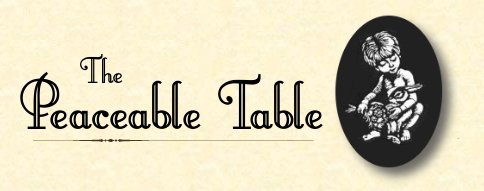
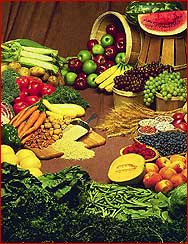 Put peas and water on to simmer; add salt, wor. sauce, rosemary and half the chopped onion. When peas are soft, in about 45 minutes, put through blender with the rest of the onion and the sausage. Return to saucepan. Add another half-cup or more of water as desired (useful for getting the last bit out of the blender). Reheat. Just before serving add the celery and garlic. Serves three.
Put peas and water on to simmer; add salt, wor. sauce, rosemary and half the chopped onion. When peas are soft, in about 45 minutes, put through blender with the rest of the onion and the sausage. Return to saucepan. Add another half-cup or more of water as desired (useful for getting the last bit out of the blender). Reheat. Just before serving add the celery and garlic. Serves three.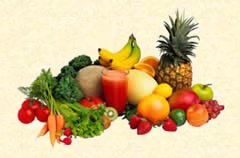 Five ounces tart berries (about 2/3 cup), fresh or thawed
Five ounces tart berries (about 2/3 cup), fresh or thawed  The Peaceable Kingdom is actually a tale of two kingdoms. This stirring documentary takes an honest look at the world of factory faming; it also introduces viewers to Farm Sanctuary, a safe haven for abused, neglected, and abandoned farm animals. The founders of Farm Sanctuary, Lorri and Gene Bauston, began taking mistreated farm animals into their yard and home in the 1980s. The organization they founded now owns a 175-acre farm near Watkins Glen, New York, where the group continues to provide care for more than a thousand rescued animals, as well as offer lectures and workshops. There are cabins for overnight guests to stay in while they learn about factory farming, eat vegan meals, and visit with the animals. (The group has a second refuge near Orland in central California.)
The Peaceable Kingdom is actually a tale of two kingdoms. This stirring documentary takes an honest look at the world of factory faming; it also introduces viewers to Farm Sanctuary, a safe haven for abused, neglected, and abandoned farm animals. The founders of Farm Sanctuary, Lorri and Gene Bauston, began taking mistreated farm animals into their yard and home in the 1980s. The organization they founded now owns a 175-acre farm near Watkins Glen, New York, where the group continues to provide care for more than a thousand rescued animals, as well as offer lectures and workshops. There are cabins for overnight guests to stay in while they learn about factory farming, eat vegan meals, and visit with the animals. (The group has a second refuge near Orland in central California.)